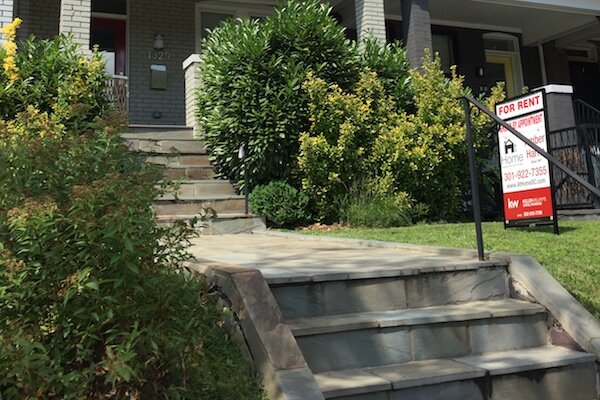Source: Pxhere
If you’ve worked with a real estate agent to buy or sell a home, you know we are the first to let you know that we are many things but there are some things we are not — lawyers, accountants, tax advisors, inspectors, etc. You also can add psychic to that, meaning we cannot predict what your home will sell for in three years or what interest rates will rise to. That being said, we are in the field every day and are in a better position than most to spot signs of change in the market that could impact your strategy or decision making.
To that end, I wanted to share some statistics that provide food for thought and observations from my experiences and conversations with fellow Realtors® as we head into the fall market. Knowing when is the right time to buy or sell, while it certainly can be impacted by market dynamics, is really mostly about your personal situation. Have you outgrown your current home or are you moving out of the region? Do you have a new job and need a shorter commute? Is what you spend on rent more than what you would spend to buy a comparable or larger home? And those are just a few.
But back to some recent observations:
Housing inventory continues to be tight. When talking about the supply of housing, we look at the months of supply (i.e., if no other properties come on the market, how many months will it be until there are no homes left — assuming the same absorption rate as today). In August 2018 in Washington, DC, there was only 1.76 months of supply (Source: MRIS), which was actually up 9.5% versus last year. To put things in perspective, six months of supply is considered a balanced market. In Arlington, VA, that number increases to a whopping 1.87 (but that’s down nearly 17% from the same time last year). If we look toward Montgomery County, that number jumps to 2.96 in Bethesda but is the lowest of the four cities at 1.74 for Silver Spring. Of course, these numbers vary depending on the specific neighborhood and the housing type (see above) and size (e.g., for townhouses in DC, there is only 1.37 months of supply).
Interest rates are gradually rising. Interest rates have been slowly but surely increasing. In August 2018, the average commitment rate on 30-year fixed-rate mortgages was 4.55% (Source: Freddie Mac). In August 2017, that number was 3.88% with a 2017 average of 3.99%. By contrast, that annual average was as high as 8.05% in 2000. Overall, interest rates are still competitive (nowhere near the 18% rates seen in the fall of 1981) but locking in a rate now can save you meaningful money on your monthly payment and over the life of your mortgage (or until you refinance). It’s important to note that just because the Fed increases interest rates by 0.25%, for example, that doesn’t mean mortgage rates will go up a quarter point (however they usually trend in the same direction).
Average 30-Year Fixed Mortgage Rates (Source: Freddie Mac)
It’s still competitive out there…but not as much as before. It was only earlier this year that we were hearing stories of 15+ offers coming in on area properties. Of late, however, there are still many multiple offer situations and short offer deadlines but to lesser extremes. Many agents attribute this to buyer fatigue (yes, it’s wearing on you to make offer upon offer only to lose out…again). While a buyer last year that heard there was a deadline and multiple offers in hand may have put on their battle gear, some buyers now are talking themselves out of the running and not writing.
Pricing matters more than ever. Pricing is always the most important consideration when taking any property to market. Many sellers (and some agents) mistakenly think that because of the limited inventory and high demand, they can command large premiums. The truth is that while there will always be properties that set new records and buyers willing to waive appraisal contingencies, most buyers are closely examining the comps with their agent-advisor and nervous about overpaying (thinking there may be a growing housing bubble). An overpriced property can sit on the market for weeks or months longer than it should (and time is money, if you’re the seller).
So. what does this mean for you as a seller and/or buyer?
If you need to sell your home, now is a great time to do so (provided you price and market it correctly). However, be prepared to possibly face challenges buying your next home if you are staying in the region and talk to your lender and agent as to timing and how to best set yourself up for success.
If you’re ready to buy but not in a hurry, run the numbers. Having flexibility as to when you can or need to buy is a blessing and a curse. Having a little bit of urgency is helpful when making a decision but, with limited inventory, you can avoid being forced to make a less-than-ideal choice. As interest rates rise, your lender can help you model out the impact of future increases so you can take the extra cost into account when considering each property and the opportunity cost of waiting.
Always be prepared. As a buyer, if you’re ready to move swiftly, you may come out ahead. With lighter competition, what it takes to go from offer to contract may be less than you think. Consider working with a lender that can underwrite your file prior to placing an offer and be ready to see properties as soon as they hit the market (or to explore off-market opportunities your agent may bring to you).
Don’t decide what’s best for you by what others are doing and/or saying. This is true in life and real estate, isn’t it? I started off this post by reminding us that there are dozens of factors that can come into play when deciding whether to buy or sell. Information and analysis are key, so make sure you have a partner who will ask the tough questions (often more than once) and arm you with insights that will help you make the best decision for you.
Amber Harris is the owner of At Home DC and a licensed real estate agent with Keller Williams Capital Properties working with clients in DC, Maryland and Virginia.



